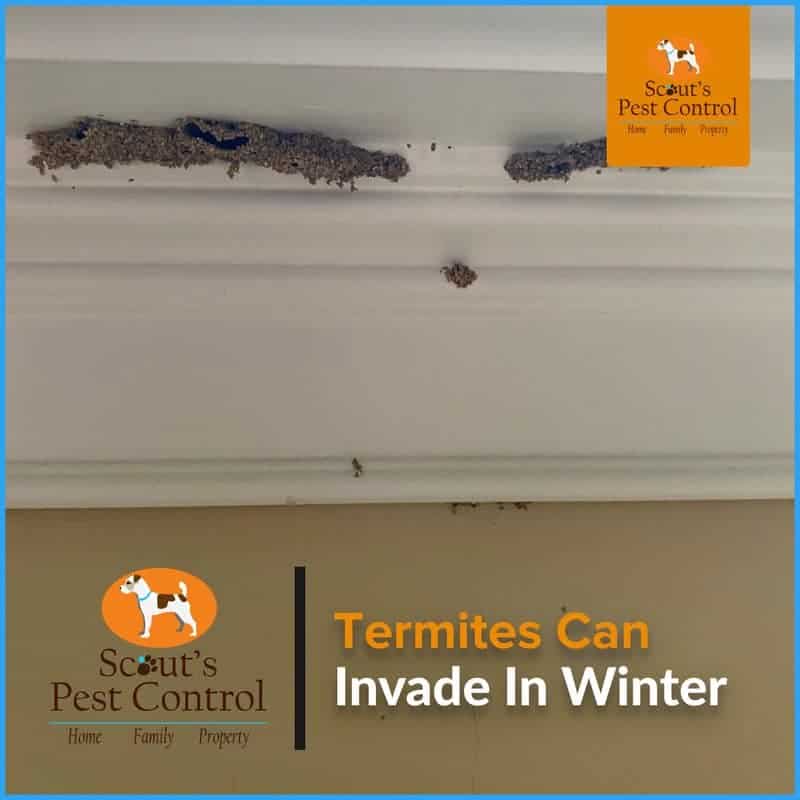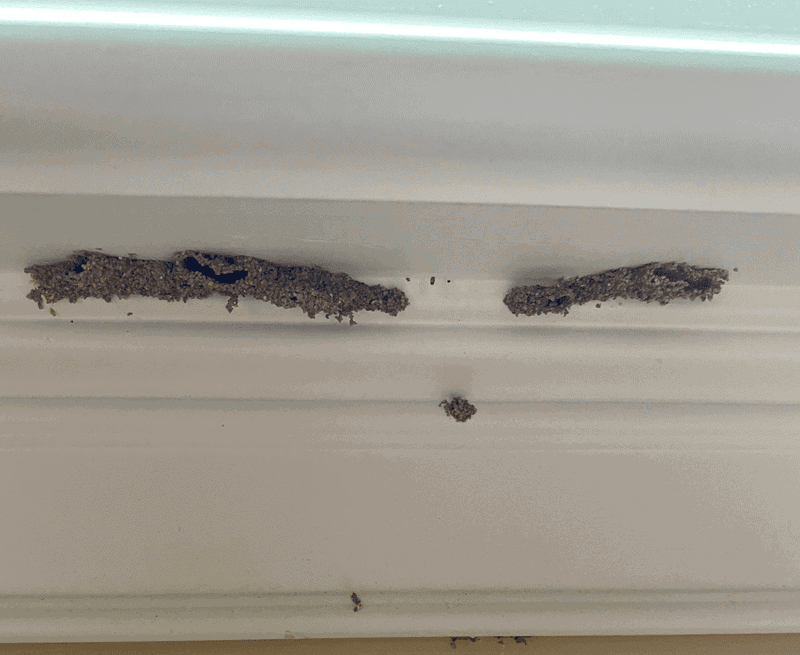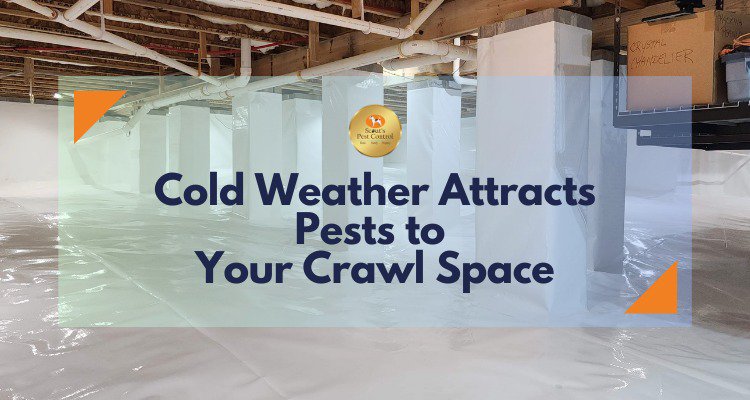Termites in Winter, really! Animals tend to hibernate during winter. However, Termites are an exception because they remain active in winter, you just do not see that activity as much due to the behavior of the Termites themselves. So yes, you do get termites in winter months. Homeowners normally see a lot of termites during the warm season. Nevertheless, homeowners tend to be less wary during winter because termites can barely be seen during this period, and that can often be the downfall. Termite control is just as imperative in winter as in summer.
Warmth for Survival
Warmth is important for survival. Mosquitoes find it hard to survive in temperatures that are less than 50 degrees. The same goes for wasps when temperatures reach less than 45 degrees. Rodents don’t hibernate and seek warmth to survive aside from food and water. They can invade your crawl space and enter your home from there. The same goes for pests like invading termites. The following image shows an active termite infestation in the fall and winter season.

Queen termites lay eggs continuously. The number depends on their age and on the species. Egg production is less likely to be affected when the nest is in heated buildings or in soil that is near heated basements. However, egg production can be halted for termites that live in temperate regions.
Winter Time Activity
During winter, damp wood and drywood termites can create nests in tree stumps. Subterranean termites normally go deeper into the ground. Tunnels and food sources that are near the surface and exposed to the cold can be abandoned. Whilst behavior of each species of termite differs a little, most have commonalities in activity. Understanding this activity is the first step in the war against termite infestations of your home. Termites in winter are still a big problem to you and your home structure.
Drywood and subterranean termites can take refuge inside your home to survive the harsh temperatures outdoors. A point to note that in South Carolina, we are concerned more about the subterranean termite and not the former. Most termite species remain active but it is rare to find a swarm of termites from December to January. This may not be the case if you live in a tropical region where the temperature inside your home is 70 degrees or more. South Carolina does enjoy 4 seasons and so the termites we need to be concerned about is the subterranean species that go deeper into the soil before finding a warmer source.
Possible Termite Infestation
Termite infestations can still occur especially when you live in a heated home. Termites thrive on three W’s: water, wood, and warmth. Let’s face it, we all need water to survive and that goes for Termites too. Everything needs water, and termites are no different. Your crawl space, may offer the right conducive conditions without your knowledge.
Termites don’t die during winter. Not seeing them isn’t a guarantee that they are under control. They stay underground most of the time so you don’t see them as often as you thought you would.
Termite species in general thrive in temperatures of 75 degrees Fahrenheit (ca. 24 °C). The location of the colony and the termite species will affect how active termites are during winter. Species like the subterranean termites seek shelter in the soil by creating nests. This is why some colonies can be found 40 inches (ca. 1 m) deep into the ground.
Bringing firewood inside your home during winter may be common. But doing so can cause problems especially when you store it on the ground. Firewood can easily attract insects and termites if you leave it indoors for long.
Termites feed on wood, and they cause structural damage if left untreated. This can go on under your nose, because you have less suspicion in the winter months. They aren’t easy to find so you shouldn’t let your guard down when you don’t see them. If you observe mud tubes and wood damage in your home, your home might be at risk of a termite infestation.
Checking for Termites in Winter
Termites live in dark spaces, well hidden under wooden structures. You can find traces of termites if you inspect your crawl space and other areas of your home. Remember that these places such as basements and crawl spaces aren’t the only areas with active termite colonies. Still, they will be a great place where you can start. Though, it is always best to get a professional Inspection completed to ensure nothing is missed.
Inspect wooden surfaces to find channels or grooves. Check for tiny holes in the wooden structures. The holes don’t serve as pathways for termites. They can be used as signs to check for debris or frass pushed out of termites’ tunnels. Again this may not be the case in South Carolina.
Frass refers to the excrement of termites that has a saw-dust texture. Termites keep their tunnels tidy most of the time. The termites’ frass will be your clues to a possible active termite colony in your home. However, this will not be the case in South Carolina as we are dealing primarily with the Subterranean species of termite, though it is possible to see minimal mud and potential frass.
Inspect your foundation walls to see if there are mud tubes inside and outside. The tubes made of mud are as wide as a pencil. Termites use these mud tubes as tunnels to protect them from the sun and the open air.

Knocking on wooden structures to check for a hollow sound will let you know that there are tunnels inside the wood. If termites are active inside a wooden structure, you can hear them as you put your ear right next to it. Crawling termites can sometimes be heard especially when they feed on the interior part of a wood.
Regular Termite Inspection
Termites can still live closer to the surface during a mild winter. A termite infestation that doesn’t get resolved immediately will result in structural damage. The severity of wood damage caused by termites gets worse with time. The cost of the repairs will be huge as compared to the cost for a regular termite treatment and encapsulating your crawl space.
This is to ensure that you keep termites at bay not just during winter but throughout the year. You need to consult termite inspectors to inspect your home for any infestation and deliver effective termite-proof solutions. Call Scouts Pest Control for a free crawl space inspection.





